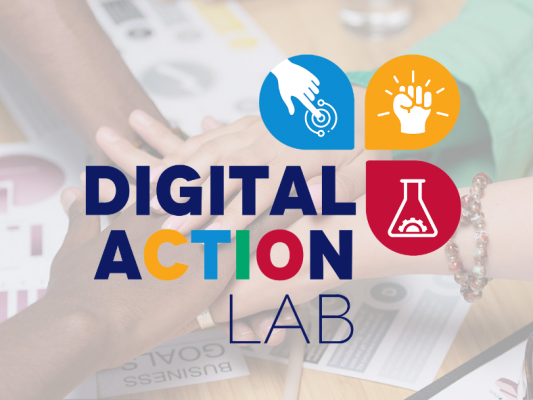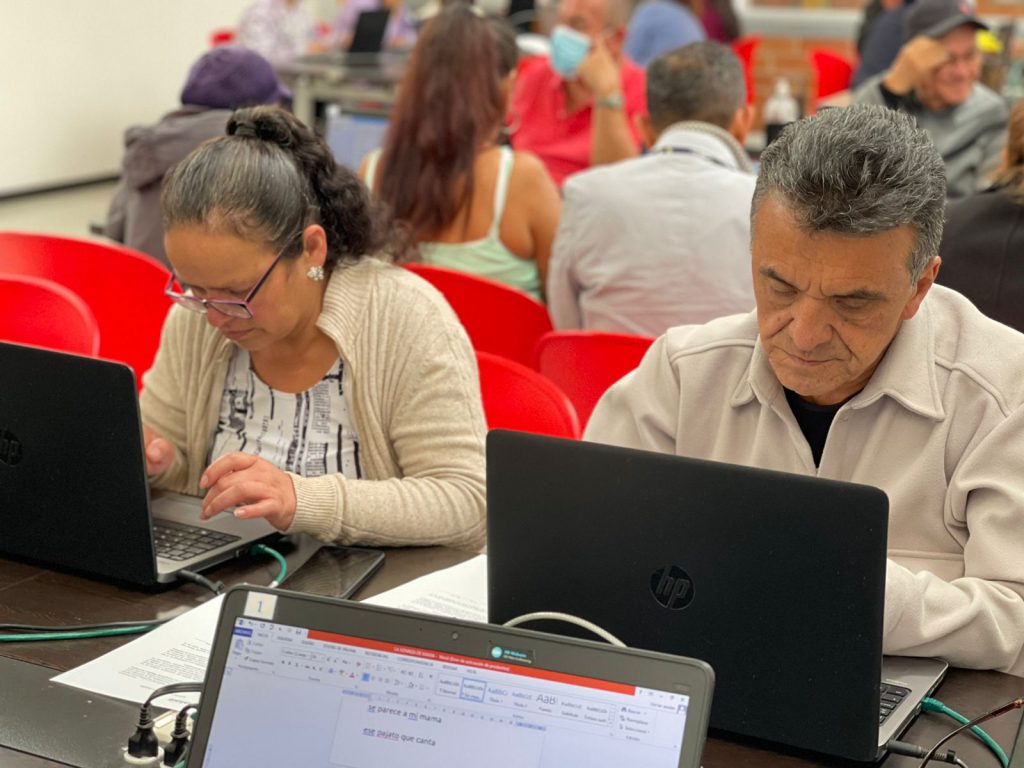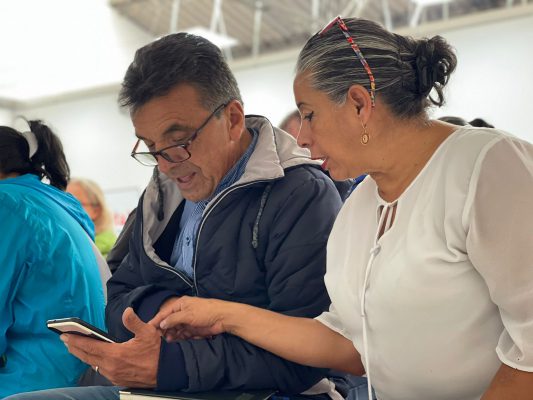Ejecution: 2024
Location: Nigeria, Kirguistán, Zambia, Nepal, Kenia, Indonesia, Líbano, Colombia, y Venezuela.
Ejecution: 2024
Location: Nigeria, Kirguistán, Zambia, Nepal, Kenia, Indonesia, Líbano, Colombia, y Venezuela.
Partners:
Civicus.
The Digital Action Lab Project aims to empower civil society actors in countries facing restricted civic space with the skills, resources and confidence to unleash the power of digital technologies to take effective action for inclusive democracy.
In this initiative, Makaia’s partners with CIVICUS –the main implementation actor– to identify and enhance the most pressing digital capacity needs of civil society organizations through our methodology of digital transformation acceleration.
This project seeks the direct impact of 9 Civil Society Organizations by offering training and personalized assessment in five areas: Vision & Strategy; Organizational Culture; Infrastructure; Marketing & communications; and Operacion/Service Delivery.
These Civil Society Organizations are based in 9 different countries through the Global South: Nigeria, Kyrgyzstan, Zambia, Nepal, Kenya, Indonesia, Lebanon, Colombia, and Venezuela.


During this 9-month project, personalized assessments from various experts aim to contribute to the acceleration of digital transformation within participating organizations. In the long term, this effort seeks to amplify the impact each organization has on its respective beneficiary communities. The international reach of this initiative aims to foster the consolidation of collaboration networks that can amplify the local impact of these initiatives.
1. Outreach and Call for Participation: The project kicks off with a comprehensive outreach campaign to attract participants, organizations, and key allies, laying the foundation for the project’s success.
2. Needs Assessment and Diagnostic Phase: A thorough analysis of the context and capabilities of the older adult population is conducted to inform the detailed planning of the digital literacy training. This phase involves:
3. Awareness Raising and Motivation: Consciousness is raised about the importance of digital literacy, motivating active participation and community engagement.
4. Digital Skills Training and Capacity Building: Educational programs are implemented to strengthen the digital skills of the participants, customizing the training based on the initial diagnostic phase.
5. Closing Event and Celebration of Achievements: A closing event is held to consolidate the project’s achievements, highlight the learnings, and encourage the continued use of acquired digital skills, marking the successful completion of the initiative.

In partnership with ScotiaBank Colpatria, we have embarked on a Digital Literacy Initiative in the city of Bogotá, empowering 70 individuals over the age of 50 with ICT skills. This initiative aims to strengthen their knowledge and capabilities in using digital tools, enabling them to expand their opportunities through ICT integration and become active participants in the digital era.
To facilitate these training sessions, we have partnered with local organizations, including the Institute for Social Economy (IPES), the ICT Advisory Council of the Mayor’s Office of Bogotá D.C., and the Center for Education for Work and Human Development (PTI) of Conviventia.


*The Digital Action Lab (DAL) is part of the DDI Digital Democracy Initiative.